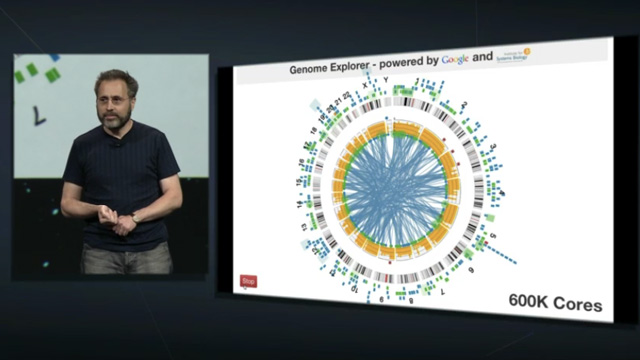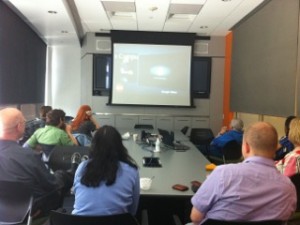ISB Featured in Google I/O Conference Keynote
 isbscience.org/news/2012/06/28/isb-featured-in-google-io-conference-keynote/
isbscience.org/news/2012/06/28/isb-featured-in-google-io-conference-keynote/
We were very excited to watch the live stream of the keynote from the Google I/O conference today, because it featured work from ISB's Shmulevich Lab, which is one of a group of research organizations that has been working on The Cancer Genome Atlas (TCGA). To help visualize the TCGA data, the lab created the Cancer Regulome Explorer using Google App Engine and Google Compute Engine. Google Compute Engine is just part of what Google sees as a whole new way for scientists around the world to work more effectively in the cloud, not only by accessing powerful computational resources, but by collaborating more easily on complex research.
Funding for ISB's research comes from TCGA and the National Cancer Institute.
[Update 2:04 p.m.]
Here's a link to the "Behind the Compute Engine demo at Google I/) 2012 Keynote." It explains how the technology is being used at ISB.
[Update 3:39 p.m.]
ISB's Ilya Shmulevich and Hector Rovira were quoted in this white paper on ISB's use of Google Compute Engine.






